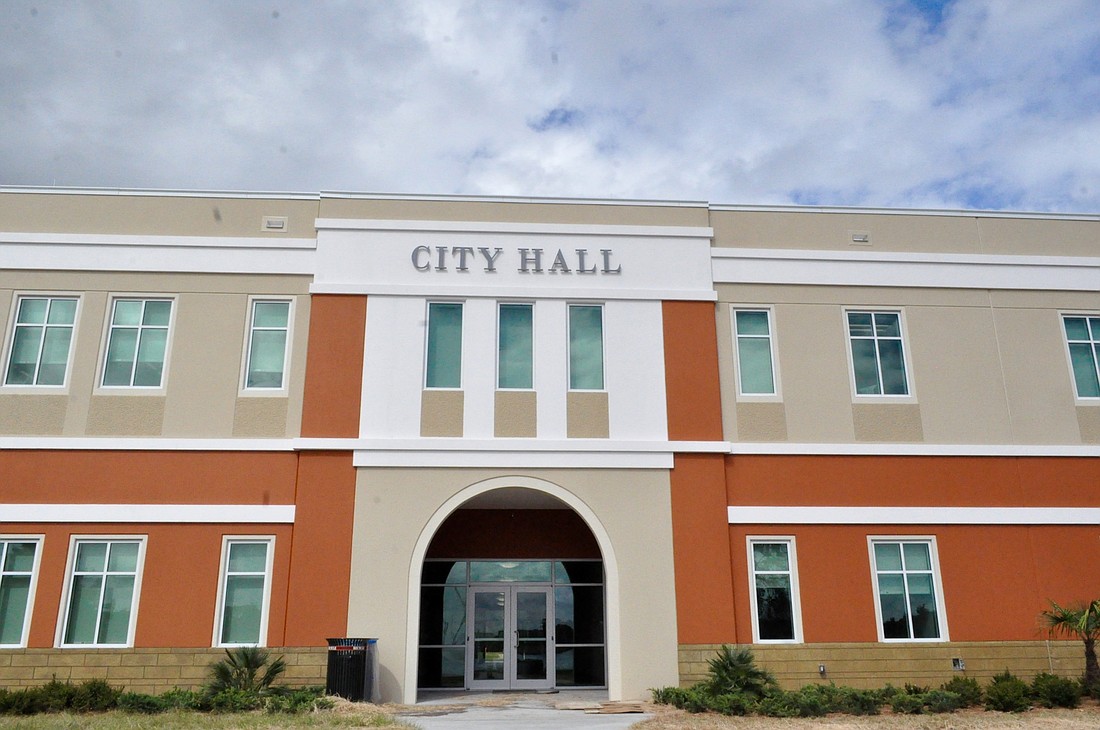- April 20, 2024
-
-
Loading

Loading

A total of 22 new staff members are working at the Florida Department of Health in Flagler County, helping perform COVID-19 contact tracing and testing as the state faces a spike in cases.
"The studies, the science, the research shows unequivocally ... that mask wearing is the most effective public health measure, in addition to social distancing, that we can take to prevent the spread of the virus."
— BOB SNYDER, Florida Department of Health-Flagler administrator
"I think a lot of us were hoping that we weren’t going to be at this place preparing for the long haul — that it was going to be a short haul and that we’d have a wave and get through it, and it would kind of go away like the flu," FDOH-Flagler Medical Director Dr. Stephen Bickel said during a city of Palm Coast Virtual Town Hall on Aug. 5. "Well, it's kind of obvious to everybody now that that’s not the case."
Instead, he said, "We just got slammed, and our caseload went up to 10, even 15 times as much" as before Florida had started spiking.
FDOH-Flagler Administrator Bob Snyder said Flagler County has had 976 positive COVID-19 cases, of which 707 were from Palm Coast zip codes. The 976 county cases include 77 children under 18.
A total of 13.3% of the county's population has been tested so far, he said. The positivity rate is 7.3% and has stayed about there for 10 days, but had been 1% just a few weeks prior.
Two indicators are more promising: the number of emergency room visits for COVID-19 symptoms has been trending down since July 12, and the virus' transmission rate is now 0.97. A rate of one would mean the rate was holding steady.
“The lower the better for decreasing transmission," Snyder said.
As flu season picks, up, Bickel said, the health department is hoping that mask-wearing and social distancing for COVID-19 will also slow spread of the flu, leading to a lighter flu season this year.
"I think what we need to get in our heads is that this is not going away anytime soon, but we’ve got to figure out how we can control it pretty well — better than we have so far — without paralyzing our economy."
— DR. STEPHEN BICKEL, Florida Department of Health-Flagler medical director
They also are hoping for a high vaccination rate.
The coming holidays, and cold weather that pushes more people inside, will be cause for concern this fall and winter, Snyder said.
"We’re just going to have to do a lot of good messaging, effective messaging, to make people aware of how congregations of folks is not the right path to take when we are still dealing with the virus," he said.
Critical to slowing the virus' reproduction rate are mask-wearing, social distancing, and fighting "COVID fatigue, minimization and denial," Bickel said.
AdventHealth Chief Operating Officer Wally De Aquino said AdventHealth had conducted a study on Central Floridians' attitudes toward mask-wearing, and had found than 63% believe masks prevent the spread of COVID-19, but the other 37% weren't sure or didn't feel that mask-wearing made a difference.
Bickel knows three people who have died from COVID-19, he said, but some people don't know anyone who's even had it.
“But you can look at the statistics: They’re not made up, even though some people think they are," Bickel said. “You may not know somebody who’s had it, but there’s a lot of it out there. ... There’s probably 10 times as many cases as we’ve actually picked up.”
Snyder said the science on masks is clear.
"The studies, the science, the research shows unequivocally ... that mask wearing is the most effective public health measure, in addition to social distancing, that we can take to prevent the spread of the virus," he said.
Whether there will be a COVID-19 vaccine is a wildcard, Bickel said.
But in the meantime, treatment for managing COVID-19 symptoms has improved considerably, he said, and peopel who get the virus now are much more likely to survive than were the people who got it months ago.
"I think what we need to get in our heads is that this is not going away anytime soon, but we’ve got to figure out how we can control it pretty well — better than we have so far — without paralyzing our economy," he said.
One of the challenges of responding to COVID-19 has been the slow turnaround on testing, but there's some reason for optimism there: Scientists are working on developing inexpensive, rapid COVID tests that could let health authorities test large numbers of people frequently and identify outbreaks at earlier stages, quarantining infected people before they spread the virus.
“We’re looking forward to seeing some real breakthroughs, and we’ve got to just do everything we can possible until we get there to contain this," Bickel said.